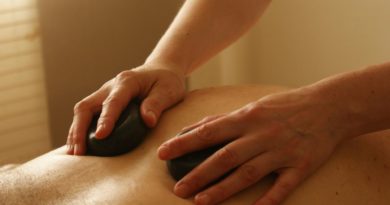Osteopathy Courses: Learn More About Osteopathy
Considering an Osteopathy Course?
If you want to learn about the drug-free, non-invasive manual therapy that aims to improve the health across all body systems by strengthening and manipulating the musculoskeletal framework, an osteopathy course may be a perfect choice for you. It can be a very rewarding career path where you get to help people heal and feel better using natural methods. There are lots of osteopathy courses currently available and don’t worry if you’re too busy, osteopathy courses are available in full-time, part-time and evening class options, in person and online.
What is Osteopathy?
Osteopathy takes a whole-body, holistic approach to healthcare. It uses manual hands-on techniques to correct altered biomechanics and improve circulation, without the use of any drugs. An osteopathic physician does not concentrate only on the problem area, but uses manual techniques to balance all the body systems, and to provide overall good wellbeing and health. Treating conditions and diagnosing using these techniques is called Osteopathic Manipulative Medicine (OMM). These techniques include gentle pressure, stretching and resistance.
An osteopathic physician may also use surgical methods and issue prescription medicine to support the manual, holistic treatment. Most osteopathic physicians also serve as primary care physicians in fields such as internal medicine and family medicine. Osteopathy can provide treatment and relief for a wide range of conditions. These include foot, ankle and knee pain, arthritis, back pain, neck pain and sciatica and headaches. In addition to hand, shoulder and elbow pain, tennis and golfer’s elbow, neuralgia and postural problems due to sport injury, pregnancy, driving or work strain or digestive issues. Osteopathic physicians can also detect conditions that are not treatable through osteopathy, to refer patients to other specialists.
Areas of Study
The course will explore osteopathy, anatomy and physiology of the neuromusculoskeletal, visceral and the head and the neck. You will also learn about anatomy and physiology in terms of neurology. Clinical pathology, differential diagnosis, research and criticality are some other topics that will be explored. You will learn about research studies, neurology, nutrition and biochemistry too. The osteopathy course will teach you about peripheral and spinal biomechanics, principles and philosophy of osteopathy and palpatory diagnosis and skills. The osteopathic procedures, exercise physiology, pharmacology and psychology will be explored. Some other topics you will learn about are clinic observation, interpretation of clinical laboratory techniques, information and computer technology skills, emergency support skills and first aid as well as health studies and other healthcare systems.
Career Opportunities
Once you complete your osteopathy course, you can work as an osteopath, an osteopathic physician and work in fields such as family medicine and internal medicine. You can also work in specific areas of osteopathic such as in sports osteopathy. The course could also be your starting point to explore other areas of medicine and treatment.
Career Progression
If you found you really enjoyed your osteopathy course, there is always room to progress. You could do a level 8 or level 9 in osteopathy or explore courses in related fields.
If you’re serious about doing an osteopathy course, check out courses near you in the Nightcourses.co.uk national course finder.




